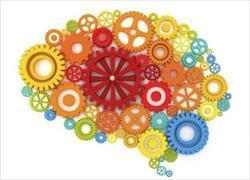
Memory Declines, Learn How to Avoid It Nowadays in the word of technology and stressful fast-pace developing communities, power of mind and memory can be endangered by many side effects. The present article then aims at briefly enumerating a number of important habits which are scientifically proved to enhance cognitive function of the brain: 1. Do Physical Activities Researchers around the world discovered more evidence that physical activity is beneficial for brain health and cognition. A recent study revealed that certain hormones, which are increased during exercise, may help improve memory. The researchers were able to correlate blood hormone levels from aerobic fitness, and identify positive effects on memory function linked to exercise. 2. Experience Demanding Skills An study titled as "The Impact of Sustained Engagement on Cognitive Function in Older Adults: The Synapse Project" found that learning new and demanding skills while maintaining an engaged social network are key to staying sharp as we age. 3. Be Curious and Creative Scientists have also found that childhood participation in arts and crafts leads to innovation, patents, and increases the odds of starting a business as an adult. The researchers argue that people who own businesses or patents received up to eight times more exposure to the arts as children than the general public. 4. Have Social Connections The health consequences of feeling lonely can trigger psychological and cognitive decline. In this line researchers found that feeling isolated from others can: disrupt sleep, elevate blood pressure, increase morning rises in the stress hormone cortisol, increase depression, and lower overall subjective well-being...all of these factors conspire to disrupt optimal brain function, connectivity, and reduce cognitive function. 5. Reduce Stress, Sleep Well “It's an intensive activity for the brain to consolidate learning and so the brain may benefit from sleep perhaps because more energy is available, or because distractions and new inputs are fewer,” said study corresponding author Yuka Sasaki, a research associate professor in Brown University’s Department of Cognitive, Linguistic, and Psychological Sciences. |


Add new comment